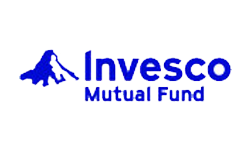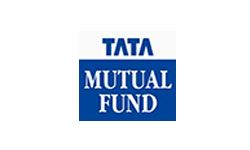Free Quote : +91 99795 50434
-
-
Email Address : beekay11111@gmail.com
-
Woking Hour : 10am to 7pm

Free Quote : +91 99795 50434
Email Address : beekay11111@gmail.com
Woking Hour : 10am to 7pm


A mutual fund is simply a financial intermediary that allows a group of investors to pool their money together with a predetermined investment objective. The mutual fund will have a fund manager who is responsible for investing the pooled money into specific securities (usually stocks or bonds). Mutual funds are one of the best investments ever created because they are very cost efficient and very easy to invest in (you don’t have to figure out which stocks or bonds to buy).
Since the stated investment objectives of a mutual fund scheme generally forms the basis for an investor’s decision to contribute money to the pool, a mutual fund can not deviate from its stated objectives at any point of time.
Mutual Funds invest in a well-diversified portfolio of securities which enables investor to hold a diversified investment portfolio (whether the amount of investment is big or small).
Fund manager undergoes through various research works and has better investment management skills which ensure higher returns to the investor than what he can manage on his own.
Investors acquire a diversified portfolio of securities even with a small investment in a Mutual Fund. The risk in a diversified portfolio is lesser than investing in merely 2 or 3 securities.
Due to the economies of scale (benefits of larger volumes), mutual funds pay lesser transaction costs. These benefits are passed on to the investors.
An investor may not be able to sell some of the shares held by him very easily and quickly, whereas units of a mutual fund are far more liquid.
Mutual funds provide investors with various schemes with different investment objectives. Investors have the option of investing in a scheme having a correlation between its investment objectives.
Funds provide investors with updated information pertaining to the markets and the schemes. All material facts are disclosed to investors as required by the regulator.
Investors also benefit from the convenience and flexibility offered by Mutual Funds. Investors can switch their holdings from a debt scheme to an equity scheme and vice-versa.
Mutual Fund industry is part of a well-regulated investment environment where the interests of the investors are protected by the regulator. All funds are registered with SEBI and complete transparency is forced.
Since the stated investment objectives of a mutual fund scheme generally forms the basis for an investor’s decision to contribute money to the pool, a mutual fund can not deviate from its stated objectives at any point of time. Every Mutual Fund is managed by a fund manager, who using his investment management skills and necessary research works ensures much better return than what an investor can manage on his own. The capital appreciation and other incomes earned from these investments are passed on to the investors (also known as unit holders) in proportion of the number of units they own.
NAV is defined as the market value of the Mutual Fund scheme’s assets net of its liabilities. NAV of a scheme is calculated by dividing the market value of scheme’s assets by the total number of units issued to the investors.
Equity mutual funds are investment that try generating high returns by investing in the stocks of companies across all market capitalisations. Equity mutual funds are the riskiest class of mutual funds, and hence, they have the potential to provide higher returns than debt and hybrid funds. The performance of the company plays a significant role in deciding the investors’ returns.
Equity funds are becoming a popular investment tool these days because of many reasons, but the main one is their ability to yield attractive returns as compared to other traditional forms of investment. Speaking of attractive returns, equity funds, which are a category of mutual funds, steal the limelight. Equity funds are known to generate the highest returns and hence, are the most sought-after among all categories of mutual funds

Aditya Birla Sun Life

Axis Mutual Fund

Bandhan Mutual Fund

Baroda BNP Paribas Mutual Fund

Canara Robeco Mutual Fund

DSP Mutual Fund

Edelweiss Mutual Fund

Franklin Templeton Mutual Fund

HDFC Mutual Fund

HSBC Mutual Fund

ICICI Prudential Mutual Fund

Invesco Mutual Fund

Kotak Mutual Fund

Mirae Asset Mutual Fund

LIC Mutual Fund

JM Financial Mutual Fund

Motilal Oswal Mutual Fund

Navi Mutual Fund

Nippon India Mutual Fund

PGIM India Mutual Fund

Parag Parikh Mutual Fund

Quant Mutual Fund

SBI Mutual Fund

Sundaram Mutual Fund

Tata Mutual Fund

UTI Mutual Fund